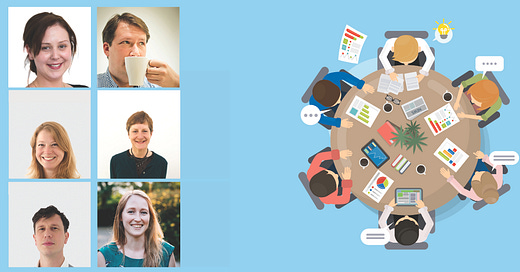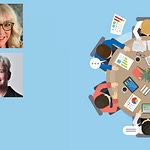Key Takeaways
Below is a quick summary of some of they key thoughts of our guests
Jon Franklin (Economics, Legacy Foresight) and Meg Abdy (Programme Management and Business Development, Legacy Foresight)
Jon from Legacy Foresight presented the three key ways that COVID-19 will affect the legacy market in the near term:
Demographic impacts
Economic impacts
Administrative impacts
Demographic impacts:
Bequests are likely to be 1-2% higher over five years as a result of COVID-19. There have been around 60k additional deaths, although not all are a direct result of COVID-19. There are two scenarios from this point, the first scenario seeing a continued decrease in the number of additional deaths from COVID-19, while the second scenario would see a second peak of cases and deaths, impacting the economy.
Due to the increased risk to elderly people and those with health conditions, Legacy Foresight predict that around 60% of the deaths caused by COVID-19 would have occurred at some point during the next five years. In terms of legacies, Legacy Foresight predict that this would lead to 8-10k additional bequests over the next five years with a peak in 2020, and then potentially the numbers would drop in future years as the deaths have been brought forward.
Economic impacts:
Share prices fell by 35% in March, they have picked up a bit since then but Legacy Foresight are expecting a significant impact on these. There have been drops in 11.5-14% in GBP, which is massive (the UK economy dropped by 4% in 2008). House prices are likely to drop around 10% at the moment. These are likely to result in a 3% drop in the values of residual bequests in 2020.
Administrative impacts:
Most organisations have adapted quickly so Legacy Foresight are not expecting a huge impact on notifications in 2020. They are expecting a bigger impact on the flow of cash from residual bequests where they require a sale of a property. They expect it to be a subdued property market and so it will take longer to realise the full value of an estate and for that cash to flow to charities. This could result in 4-23% drop compared to 2019 (taking into account demographic, economic and administrative impacts).
Legacy Foresight are still anticipating growth in the next 5 years, and in 2024 income could be 9-13% higher than 2019, so the drivers of legacy income are strong but the economic impacts are likely to create a drag.
Q&A
Jon recommends that organisations look at forecasts regularly and monitor the news. His top tip was to think about what the safe bets are in your income and build plans around that.
It takes a long time for the numbers of bequests to change, and so it is unlikely to change a huge amount in 5 years. While they recognise there will likely be problems over the next 18 months – 2 years, Meg imagines that legacy income will bounce back quite quickly and is still optimistic about the future of legacy fundraising and legacy giving. If you look at the demographic trends along with death rates, these are likely to lead to more bequests. If a charity has touched a person or champions something they care about, they will still find a place in their will for that charity. A rise in childless women who are now in their 50s-60s are far more likely to leave legacies.
While there may be impacts on the solicitor sector, Jon suspects they wouldn’t be disproportionally hit compared to the arts, retail and hospitality sectors.
Meg noted that in the short-term people may be more likely to give to charities but it is hard to tell if that will continue in the long-term. A lot of community virtual events and groups, including food bank deliveries, volunteers, are organised by individuals charities and so charities will have to prove that they are able to deliver change more so than these other groups and deserve the money more.
Kate Jenkinson (Head of In-Memory Consultancy, Legacy Foresight)
Kate presented on in-memory through the pandemic. She noted that charities will see a decline in in-memory income particularly health and disability charities, because of funerals and in-memory events being cut from social distancing. 2/3rds of surveyed charities feel that their funeral donations had decreased. Before coronavirus, there had already been a downward trajectory for funeral donations for the past 8 years. There has been an increase in memoralisation, leaving thoughts, candles and pictures. The public have shown they want to act in their memory at a heightened period. Guardian Angel has seen a 500% increase of web traffic on their site. The public are being creative in their fundraising activities. Charities have seen tribute income increase by 14%, which has seen increased value rather than new pages set up.
Alzheimer’s Research UK has seen a 500% increase in the number of gifts online compared to in the post. Almost half of charities have contacted donors via email or phone as opposed to mail. Donors seem to be more open and engaged with having contact with charities and having conversations about loss.
Q&A
Kate reassures that supporters are wanting to remember their loved ones during this time. There are gentle ways of doing this, acknowledging that leaving a memory can be helpful, and maybe give examples of supporters who have been through it and found it helpful for their grief. Talking head videos could be really helpful.
ARUK has seen an increase in stewardship engagement to in-memory audience. This is the perfect time to build that relationship. Make sure that you are informing donors about the whole package of support and not just in-memory giving.
Kate’s top tips are:
Keep communicating in any way you can with your supporters. Even if you can’t directly communicate, do so via the website.
Encourage storytelling as much as you can. People are treating tribute pages as happy memory places to go and that is why they are surging.
Don’t neglect funerals, they are still going ahead, make sure the information is still on your website.
There may be a surge in memorial services after the funeral and this could be an opportunity. Come up with creative ways to remind people that there can still be a collection and how importantly the person regarded the charity.
You can read more about Legacy Foresight’s new research findings: in-memory through COVID-19 here: https://www.legacyforesight.co.uk/research/news/#new-research-findings-in-memory-through-covid-19
Jenny Kronbergs (Head of Gifts in Wills, Unicef)
The whole team is still working but they have had to adapt to a few logistical problems, including post. They have had to review planned events but they are still seeing similar trends and similar results. There has been no push back from donors. They saw an initial peak in bequests at the start of lockdown but it is going back down to the usual level.
Jenny’s team have just finished a reforecast based on the Legacy Forecast data. They are trying to not get too caught up on the income this year and instead look long-term and what the income will be over the next five years. This year can be a blip in a long-term plan.
Unicef have launched a new campaign on the impact of COVID-19 on children around the world. They have had to cancel their big in-person events so they are instead thinking about how to engage supporters in different ways.
Jenny’s team are checking monthly on their plans. They had a lot of events planned, and so they are re-analysing in the long-term if they should change that as a strategy. This could be a chance to enagage with those who were not able to go to physical events for reasons to do with their health, age, disability or location. Virtual events could be a way forward and an opportunity to provide value digitally. This could be a chance to change the whole structure of our programme.












Share this post